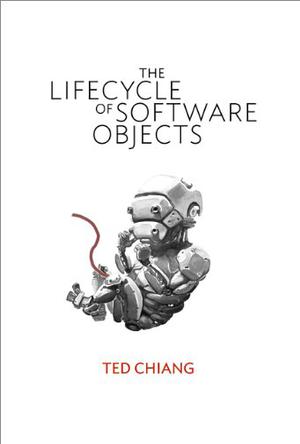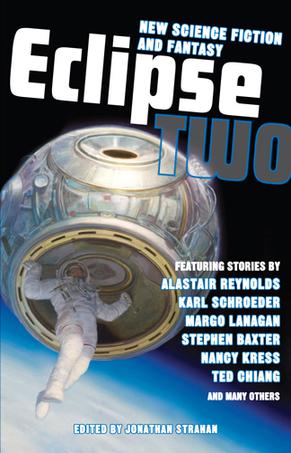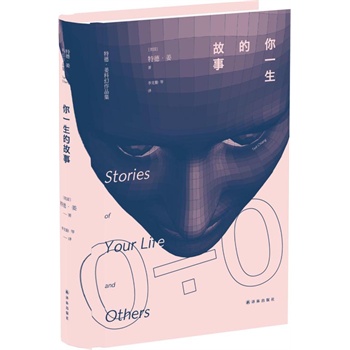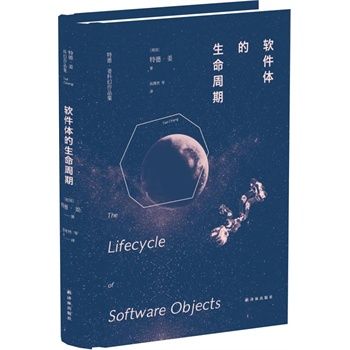-

The Lifecycle of Software Objects
What's the best way to create artificial intelligence? In 1950, Alan Turing wrote, 'Many people think that a very abstract activity, like the playing of chess, would be best. It can also be maintained that it is best to provide the machine with the best sense organs that money can buy, and then teach it to understand and speak English. This process could follow the normal teaching of a child. Things would be pointed out and named, etc. Again I do not know what the right answer is, but I think both approaches should be tried.' The first approach has been tried many times in both science fiction and reality. In this new novella, at over 30,000 words, his longest work to date, Ted Chiang offers a detailed imagining of how the second approach might work within the contemporary landscape of startup companies, massively-multiplayer online gaming, and open-source software. It's a story of two people and the artificial intelligences they helped create, following them for more than a decade as they deal with the upgrades and obsolescence that are inevitable in the world of software. At the same time, it's an examination of the difference between processing power and intelligence, and of what it means to have a real relationship with an artificial entity. -

呼吸--宇宙的毁灭
But in the normal course of life, our need for air is far from our thoughts, and indeed many would say that satisfying that need is the least important part of going to the filling stations. For the filling stations are the primary venue for social conversation, the places from which we draw emotional sustenance as well as physical. We all keep spare sets of full lungs in our homes, but when one is alone, the act of opening one’s chest and replacing one’s lungs can seem little better than a chore. In the company of others, however, it becomes a communal activity, a shared pleasure Hugo Award for Best Short Story (2009) ,Locus Award for Best Short Story (2009) British Science Fiction Association Award for Best Short Story (2009) Grand Prix de l'Imaginaire for Best Translated Short Story or Collection (2010) -

你一生的故事
一瞥之下,过去与未来轰轰然同时并至, 我的意识成为长达半个世纪的灰烬,时间未至已成灰。 五十年诸般纷纭并发眼底,我的余生尽在其中。 还有,你的一生。 《你一生的故事》结集特德·姜早期的七篇作品:代表作《你一生的故事》、处女作《巴比伦塔》以及《领悟》、《除以零》、《七十二个字母 》、《人类科学之演变》、《地狱是上帝不在的地方》—— 一个语言学家学会了一门外星语言,彻底改变了她的世界观。过去、现在、未来,在她眼前同时展开。 为了离上帝更近,人类伐木烧砖,拉车砌塔,经过无数个世代的辛劳,终于建成一座巍峨耸立于天地之间的通天塔。 只要一小瓶药水,就能拥有超人智慧,这个诱惑无人能挡。可惜超人不止一个,荡气回肠的超人对决之后,领悟终极的智慧。 任何数字除以零,都不会得出一个有意义的结果。两个人的感情除以零,结果是什么? 在一个“名字驱动一切”的世界,命名师们玩转七十二个字母,寻找人类种族繁衍的密码。 当人类的所有科学研究仅仅局限在解读后人类的科研成果时,这种研究是否还有存在的必要? 妻子在天使下凡时去世,丈夫却必须学习如何热爱上帝,以便死后与妻子团聚。 -

软件体的生命周期
你永远不可能挽救每一只数码体 人工智能时代的小人物大命运 《软件体的生命周期》结集特德·姜最新的六篇作品:《软件体的生命周期》、《赏心悦目》、《商人和炼金术士之门》、《呼吸——宇宙的毁灭》、《前路迢迢》及《达西的新型自动机器保姆》—— 安娜在蓝色伽马培育数码体,供喜爱之人购买当宠物。随着数码体市场的发展、壮大、冷淡和萧条,数码体们的命运也随之发生变迁。 戴上“审美干扰镜”,人们就无法分辨一个人相貌的美丑。这一新技术的诞生是否可以彻底根除相貌歧视,让我们听听那些当事人是怎么说的。 穿越时空之门回到过去,能够对既定的事实带来改变吗? 每天早上醒来之后,先把用完的肺换掉。来自地下的空气流源源不断,只可惜,我们耐以生存的似乎并不是空气。 当你的每一个决定都被他人精确预料,你是欣然接受,还是无助挣扎? 把孩子给保姆照料让人不放心,可如果这个保姆是个严格执行命令、百分百听指挥的机器人呢?